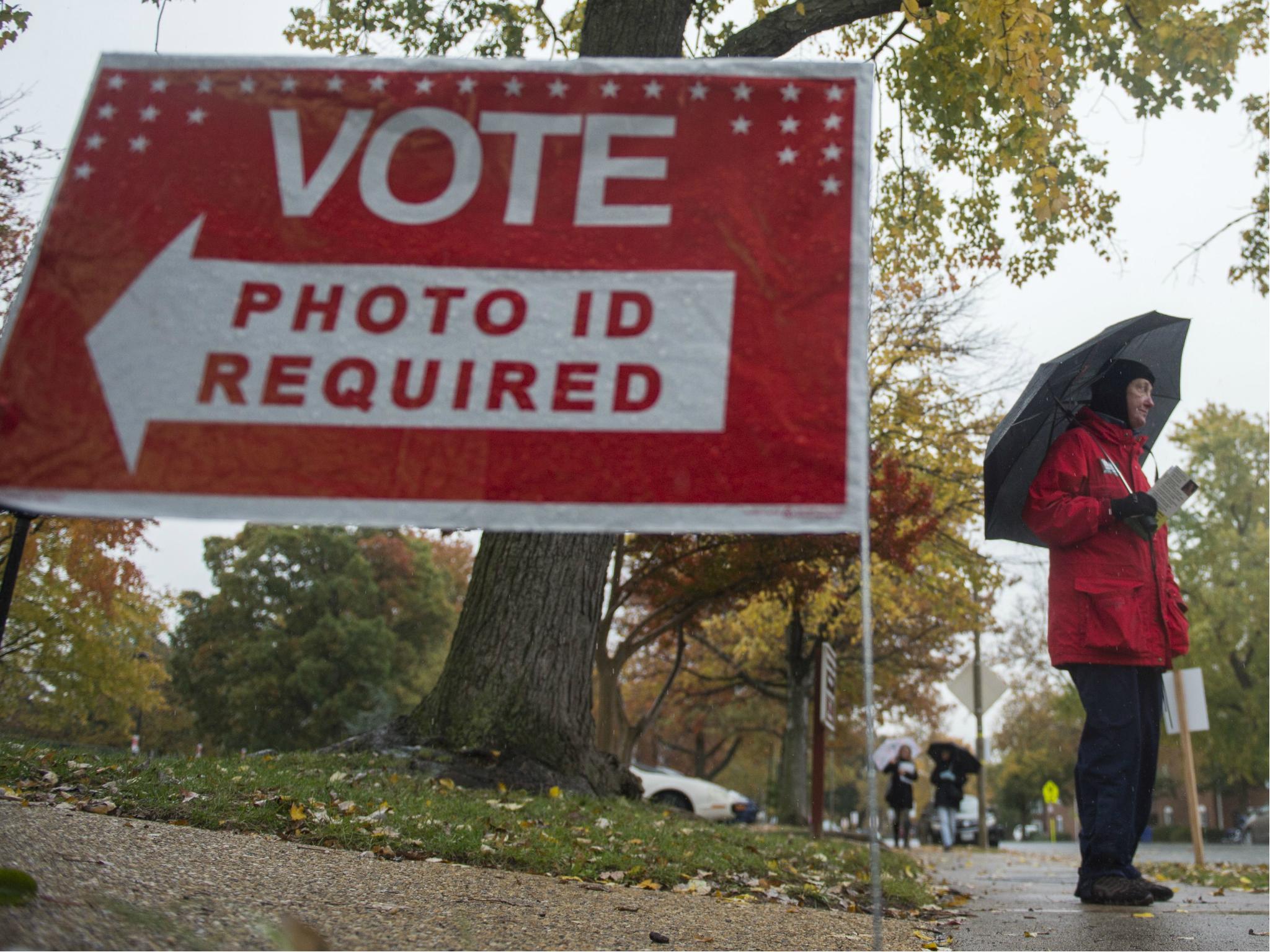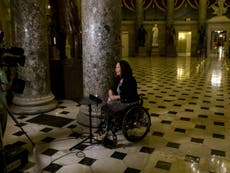The United States pretends it gives the vote to every citizen over the age of 18. It doesn't – not by far
In the 2016 elections, more than one in 10 adult Floridians were unable to vote because of their criminal past. This includes things like driving without a licence

As part of the process of applying for US citizenship, everyone has to take a wee test to demonstrate they know a little bit about the country’s history and constitution. As long as you cram in advance – they give you a booklet with 100 possible questions and answers before you show up – little can go wrong. What issue was the Civil War fought over? Slavery. And so on.
Seven years ago, I almost screwed it up. When my interrogator asked who is allowed to vote, I embarked on a virtual oral essay. It’s meant to be all citizens 18 or over, I began, but if you are a convicted felon in Florida, even if your sentence is completed, you can’t. I was about to go on, but her eyes had narrowed in irritation. Finally she made a gesture that told me to zip it.
It wasn’t the occasion to highlight the shortcomings in America’s democratic apparatus. I might have gone on about the egregious gerrymandering of congressional districts, too. This was back in 2011, precisely when Republicans had won control of a whole raft of state legislatures and were seizing their chance to redraw borders to fix the outcomes of future elections in their favour in as many seats as possible. The disenfranchising effect of that practice is powerful too.
Democratic participation is a hot topic on both sides of the Atlantic. Britain is celebrating the 100th anniversary of some women being given the vote and seems also to be headed towards lowering the minimum voting age to 16. Here in the US, it’s more about acknowledging precisely the gaps in the system I unwisely attempted to explore in my citizenship interview.
There is hope that some of the worst of recent district-fiddling by Republicans will be unpicked. The legality of the current electoral maps in Wisconsin and Maryland are before the US Supreme Court. It is unlikely to act quickly enough to have an impact in those states in time for November’s congressional elections. But in Pennsylvania it’s a different story entirely.
The Republicans in Harrisburg were told by the Pennsylvania Supreme Court last month to go back and undo district lines they drew seven years ago. It was gerrymandering on a grand scale, creating congressional districts that made no geographical sense whatsoever but had the effect of funnelling as many democratic voters into as few districts as possible assuring that in all the others, especially in the Philadelphia suburbs, their candidates would always win.
Even on its face, this is welcome. The United States Supreme Court this week turned down a request for a stay on the state court's order and Republicans in the state must come up with a new map within two weeks. The political cost to them could be significant. Democrats calculate it could deliver them a net gain of five districts in the state in November. As they strive to retake control of the House of Representatives in Washington, Pennsylvania could make the difference.
The scandalous prohibition on ex-convicts voting, meanwhile, may also be starting to crumble. Few argue that those actually in prison should get to vote. They can’t in 48 of the 50 states. But it’s what happens after their release that is attracting debate. Today, 34 states also prevent felons from voting for as long as they are on post-prison probation or parole. But then there are 12 states, notably Florida, that to varying degrees bar them voting for the rest of their lives.
The effect of this in Florida is profound, though it is rarely advertised. In 2016, more than one in 10 adult Floridians were unable to vote because of a criminal past. Keep in mind this includes things like driving without a licence as well as more serious matters like burglary or crimes of violence. Then there is the racial spillover from the fact that African Americans are disproportionately represented in the prison system. One in every five African-Americans in the Sunshine State didn't need to bother turning up at voting stations on election day in 2016 because they'd have been turned away.
Or look at it this way. In 2000, George W. Bush won Florida – and thus the White House – by 537 votes. The state, meanwhile, in its wisdom, excludes 1.5 million people with criminal records from casting votes. If you don’t see a moral case for change, you might see a political one. It’s why Governor Rick Scott, a Republican, is fighting to have the current prohibitions preserved. Of course he is. But before the year is out, he may run out of road.
A week ago, a federal judge in Tallahassee, the state capital, issued a razor-edged ruling that excoriated the current arrangement as unconstitutional and biased and ordered all parties to find a remedy at once. “A person convicted of a crime may have long ago exited the prison cell and completed probation,” Judge Mark Walker wrote in his order. “Her voting rights, however, remain locked in a dark crypt. Only the state has the key — but the state has swallowed it.”
The ruling, delivered in a lawsuit filed by a group of former felons against Scott, comes amid a wider effort by activists to put a ballot initiative on the issue before voters in the state in November. They have already gathered the signatures they need. If the initiative gets 60 per cent support or more, it passes and will become law. The signs are that it might.
One way or another, relief may soon be in sight for the 1.5 million who remain deprived of the light of democracy in that so-called Sunshine State. And the Englishman seeking to swear allegiance to the flag can rehearse his answer about who can vote in America more or less with a straight face.





Join our commenting forum
Join thought-provoking conversations, follow other Independent readers and see their replies